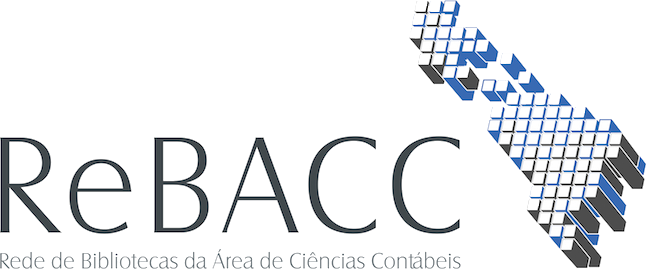Use este identificador para citar ou linkar para este item:
http://rebacc.crcrj.org.br/handle/123456789/1432| metadata.atena.dc.title: | TABLEAU DE BORD VS BALANCED SCORECARD Dashboard VS. Balanced Scorecard |
| metadata.atena.dc.creator: | Jair Antonio Fernandes Cristina Crespo Soler Vicente M. Ripoll Feliu Carlos Eduardo Facin Lavarda |
| metadata.atena.dc.subject: | Tableau de Bord; Balanced Scorecard; Cuadro de Mando Integral; Balanced Scorecard; Strategic Management Systems |
| metadata.atena.dc.date.issued: | 2014-11-12 |
| metadata.atena.dc.publisher: | REVISTA DE CONTABILIDADE DO MESTRADO EM CIÊNCIAS CONTÁBEIS DA UERJ |
| metadata.atena.dc.description: | O objetivo do presente trabalho é realizar uma pesquisa teórica sobre os conceitos e principais diferenças entre as ferramentas de gestão Balanced Scorecard (BSC) e Tableau de Bord (TB),
utilizadas desde o século XX, por diversas empresas em todo o mundo, para o gerenciamento e a tomada de decisão. As principais conclusões do estudo são: que o BSC propõe uma relação de causa efeito entre as áreas estratégicas da organização, enquanto que o TB está voltado à perspectiva
financeira da empresa, na sua versão mais tradicional; e que o BSC propõe uma vinculação entre o cumprimento dos objetivos estratégicos e os sistemas de incentivos dos colaboradores. O TB é uma metodologia mais antiga que o BSC; que vários autores afirmam que são ferramentas diferentes em
diversos aspectos como as diferenças ideológicas e de status outorgado às técnicas de gestão, nos países que desenvolveram ambas metodologias, especificamente França e Estados Unidos.
Palavras-chave: Tableau de Bord; Balanced Scorecard; Cuadro de Mando Integral
ABSTRACT
This paper discuss from a theoretical point of view both the concepts and main differences between two
management tools, Balanced Scorecard (BSC) and Tableau of Bord (TB), used since the twenty century by several companies all over the world for the management and the decision making process. The main conclusions are that BSC proposes a cause-effect relationship among the company strategic
areas, while traditional TB is addressed to the company financial perspective; furthermore BSC proposes a link between the strategic objectives and the reward systems. TB is an older methodology than BSC and the other hand many authors affirm that they are different tools in several aspects as the ideological differences and the management techniques status in the countries that developed both methodologies, specifically France and United States of America.
Keywords: Tableau of Bord; Balanced Scorecard; Strategic Management Systems This paper discuss from a theoretical point of view both the concepts and main differences between two management tools, Balanced Scorecard (BSC) and Tableau of Bord (TB), used since the twenty century by several companies all over the world for the management and the decision making process. The main conclusions are that BSC proposes a cause-effect relationship among the company strategic areas, while traditional TB is addressed to the company financial perspective; furthermore BSC proposes a link between the strategic objectives and the reward systems. TB is an older methodology than BSC and the other hand many authors affirm that they are different tools in several aspects as the ideological differences and the management techniques status in the countries that developed both methodologies, specifically France and United States of America. Keywords: Tableau of Bord; Balanced Scorecard; Strategic Management Systems |
| metadata.atena.dc.identifier.uri: | http://rebacc.crcrj.org.br/handle/123456789/1432 |
| metadata.atena.dc.identifier: | http://www.atena.org.br/revista/ojs-2.2.3-06/index.php/UERJ/article/view/645 |
| Aparece nas coleções: | Artigos - Atena |
Arquivos associados a este item:
Não existem arquivos associados a este item.
Os itens no repositório estão protegidos por copyright, com todos os direitos reservados, salvo quando é indicado o contrário.

